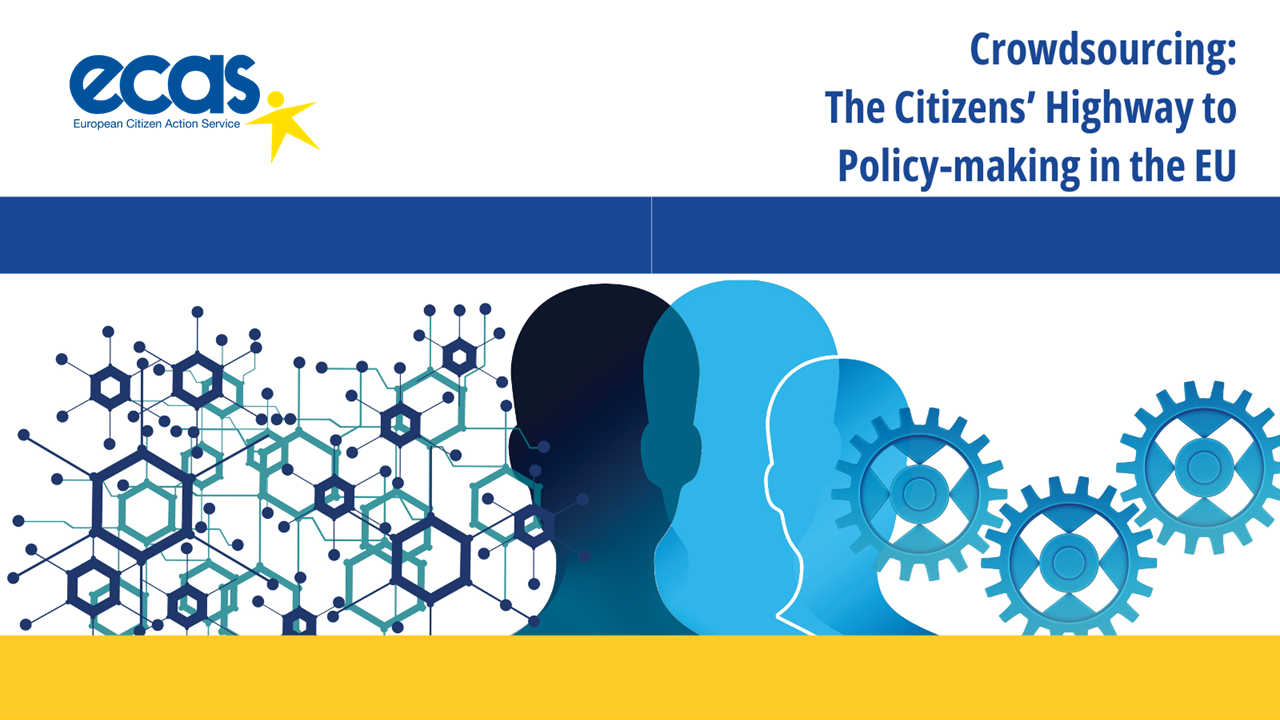
Crowdsourcing is a digital democracy method that mobilises the so called ‘wisdom of the crowd’ on a public policy issues.
It is an e-participation process that has the potential to improve representative democracy by complementing it with more direct citizen engagement in decision-making processes. It can lead to policy perspectives that reflect more accurately citizens’ concerns, thus renewing an essential promise of democracy: that citizens are not only heard but, above all, listened to in the development of public policies that affect them. Those have been the conclusions of ECAS’s working paper “Towards a Crowdsourcing Pilot at the EU level: Taking Decisions with Citizens and Not for Them”1, published in 2016 analysing 27 case studies of crowdsourcing from around the globe.
Based on the lessons learnt from the assessment of the ten crowdsourcing pilots, we have developed the following Blueprint of 15 recommendations for a successful citizen-centric transnational crowdsourcing process with a potential for creating epistemic, democratic and economic value: epistemic value because policy-makers are provided with the crowds’ experience and expertise-based knowledge, democratic value because it increases inclusiveness, transparency, accountability, deliberation and civic empowerment in policy-making and lastly, economic value because it gives access to innovative solutions, a more efficient knowledge search and a committed public.
Read the executive summary here and read the full report below: